
San Diego: America's Finest City
San Diego, located on the southern coast of California, is known for its stunning beaches, perfect weather, and vibrant culture. As you stroll through the city, you'll find a blend of historic charm and modern attractions, making it a versatile destination for all types of travelers. From the historic Gaslamp Quarter to the expansive Balboa Park, San Diego offers a myriad of experiences waiting to be discovered. One of the key highlights of San Diego is its coastline. With over 70 miles of beaches, you can enjoy activities like surfing, sunbathing, and tide pooling. Don't miss the iconic La Jolla Cove, where you can snorkel with colorful fish and even spot sea lions basking on the rocks. If you're a fan of marine life, a visit to SeaWorld San Diego is a must. San Diego is also home to the world-renowned San Diego Zoo, situated in Balboa Park. The park itself is a treasure trove of museums, gardens, and theaters, offering endless exploration. The USS Midway Museum provides an immersive naval experience, while Old Town San Diego State Historic Park takes you back to the city's origins with its preserved buildings and lively reenactments. Food enthusiasts will find San Diego's culinary scene to be diverse and exciting. From fresh seafood to mouth-watering tacos, the city's dining options cater to all tastes. Be sure to try the local craft beers, as San Diego is famous for its thriving brewery scene.
Local tips in San Diego
- Plan your visit to Balboa Park on a Tuesday for free museum entries at select locations.
- Reserve tickets for the San Diego Zoo in advance to skip the lines.
- Use public transportation or rideshares to navigate the busy downtown area and avoid parking hassles.
- Bring a light jacket for the evenings, even during summer, as coastal temperatures can drop.
- Check the tide schedules before heading to the beaches for the best experience.
- Visit Little Italy's farmers' market on Saturdays for fresh produce and unique local goods.
Neighbourhoods in San Diego
San Diego: America's Finest City
San Diego, located on the southern coast of California, is known for its stunning beaches, perfect weather, and vibrant culture. As you stroll through the city, you'll find a blend of historic charm and modern attractions, making it a versatile destination for all types of travelers. From the historic Gaslamp Quarter to the expansive Balboa Park, San Diego offers a myriad of experiences waiting to be discovered. One of the key highlights of San Diego is its coastline. With over 70 miles of beaches, you can enjoy activities like surfing, sunbathing, and tide pooling. Don't miss the iconic La Jolla Cove, where you can snorkel with colorful fish and even spot sea lions basking on the rocks. If you're a fan of marine life, a visit to SeaWorld San Diego is a must. San Diego is also home to the world-renowned San Diego Zoo, situated in Balboa Park. The park itself is a treasure trove of museums, gardens, and theaters, offering endless exploration. The USS Midway Museum provides an immersive naval experience, while Old Town San Diego State Historic Park takes you back to the city's origins with its preserved buildings and lively reenactments. Food enthusiasts will find San Diego's culinary scene to be diverse and exciting. From fresh seafood to mouth-watering tacos, the city's dining options cater to all tastes. Be sure to try the local craft beers, as San Diego is famous for its thriving brewery scene.
When is the best time to go to San Diego?
Iconic landmarks you can’t miss
Balboa Park
Discover San Diego's cultural heart at Balboa Park, a 1200-acre urban oasis with world-class museums, stunning gardens, captivating theaters, and the famous San Diego Zoo.
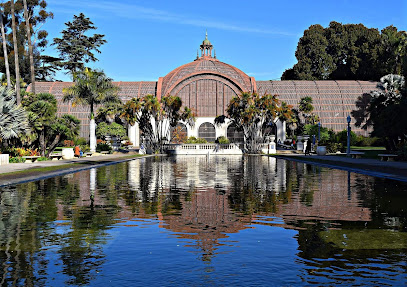
San Diego Zoo
Discover a world of wildlife and botanical wonders at the San Diego Zoo, a leading conservation organization committed to protecting endangered species and inspiring a passion for nature.
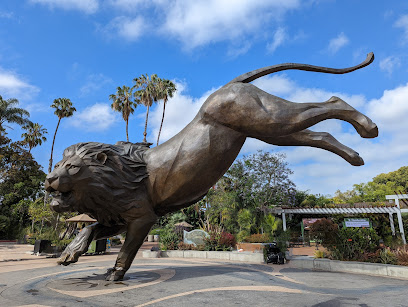
SeaWorld San Diego
Discover the wonders of marine life, experience thrilling rides, and support ocean conservation at SeaWorld San Diego, a premier destination for family fun and adventure on Mission Bay.
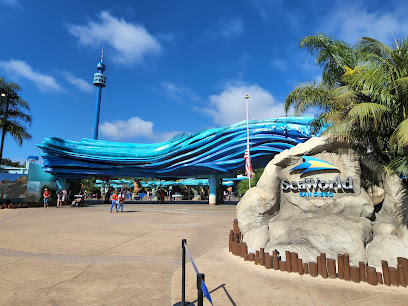
Old Town San Diego State Historic Park
Discover California's birthplace in Old Town San Diego State Historic Park, where history, culture, and vibrant traditions come alive. Explore meticulously preserved buildings and immerse yourself in the spirit of early San Diego.
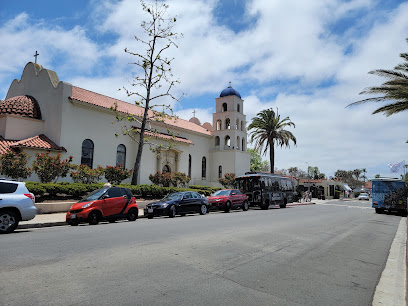
Seaport Village
Discover waterfront shopping, dining, and entertainment at San Diego's charming Seaport Village, a historic destination with unique shops, delicious eateries, and stunning bay views.
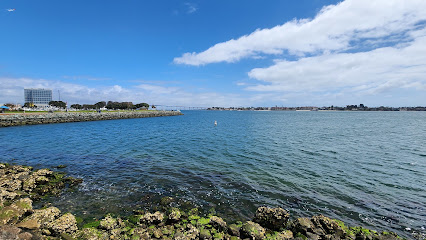
Torrey Pines State Natural Reserve
Discover breathtaking ocean views, rare Torrey pines, and diverse hiking trails at this coastal wilderness, a true gem of Southern California's natural beauty.
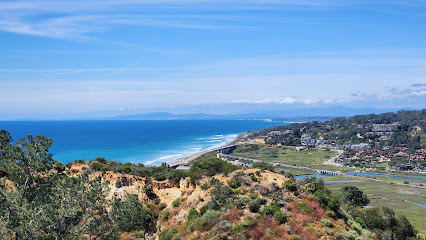
Cabrillo National Monument
Discover San Diego's rich history and stunning natural beauty at Cabrillo National Monument, where panoramic views, tide pools, and the iconic Old Point Loma Lighthouse await.
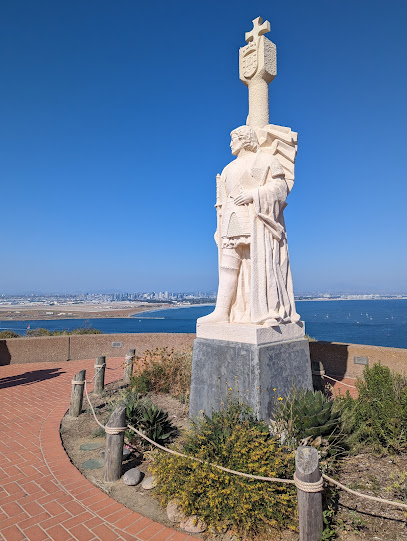
Mission Beach Boardwalk
Experience the quintessential San Diego beach vibe on the Mission Beach Boardwalk: sun, sand, amusement park thrills, and endless ocean views await at this iconic destination.
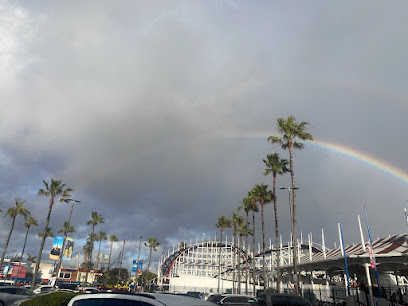
Chicano Park
Discover the vibrant heart of Chicano culture in San Diego's Barrio Logan at Chicano Park, home to the world's largest collection of Chicano murals and a testament to community pride.
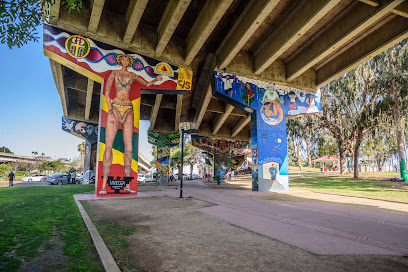
Maritime Museum of San Diego
Explore a world-class collection of historic ships at San Diego's Embarcadero. Climb aboard the Star of India and more for an unforgettable maritime adventure through centuries of seafaring history.
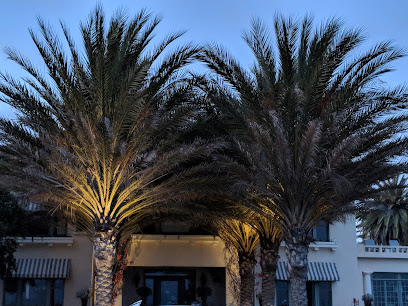
Spruce Street Suspension Bridge
Experience a thrilling walk above Kate Sessions Canyon on San Diego's historic Spruce Street Suspension Bridge, a unique landmark offering stunning views and a gentle sway.
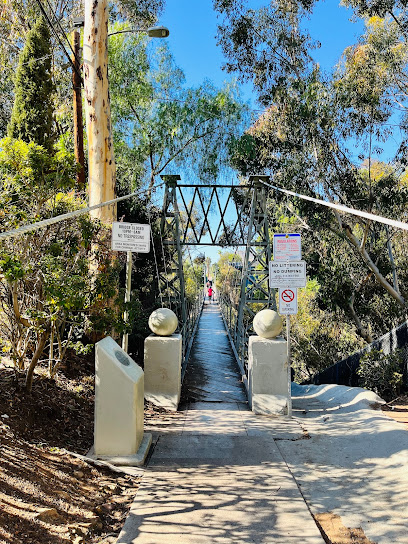
Old Point Loma Lighthouse
Explore San Diego's maritime history at the Old Point Loma Lighthouse, offering panoramic views and a glimpse into 19th-century lighthouse life within the scenic Cabrillo National Monument.
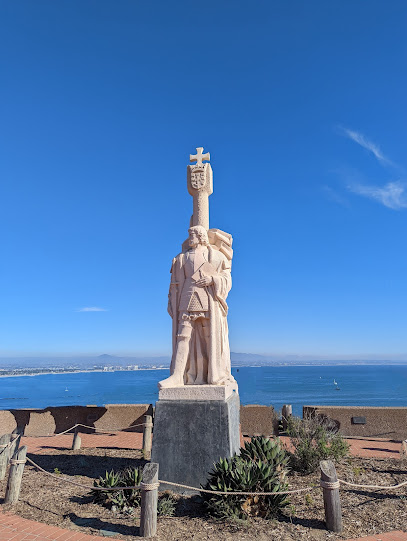
Mormon Battalion Historic Site
Discover the inspiring story of faith and service at the Mormon Battalion Historic Site in San Diego's Old Town, where interactive exhibits bring history to life for all ages.
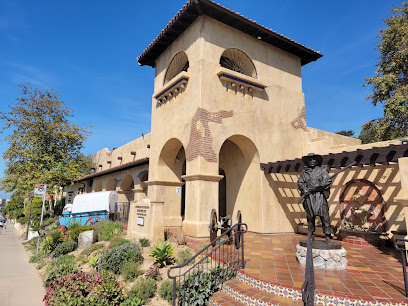
Whaley House Museum
Explore San Diego's haunted history at the Whaley House Museum, a landmark offering daytime historical tours and chilling evening ghost encounters in one of America's most haunted homes.
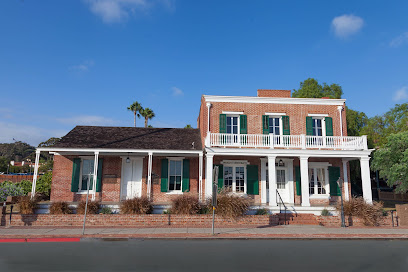
Alcázar Garden
Discover a tranquil Spanish-Moorish oasis in Balboa Park: Alcázar Garden's vibrant floral displays, ornate fountains, and serene atmosphere offer a captivating escape for all visitors.
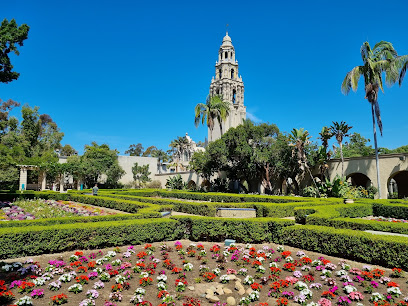
Unmissable attractions to see
San Diego Zoo
Discover a world of wildlife and botanical wonders at the San Diego Zoo, a leading conservation and education center in beautiful Balboa Park.
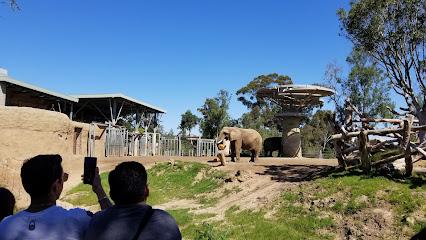
USS Midway Museum
Explore a historic aircraft carrier, walk in the footsteps of 200,000 sailors, and witness naval aviation history at San Diego's USS Midway Museum.
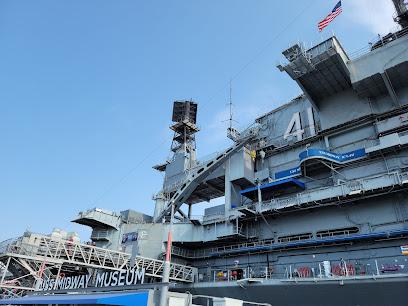
SeaWorld San Diego
Discover amazing marine life, thrilling rides, and inspiring shows at SeaWorld San Diego, a must-visit destination on Mission Bay.
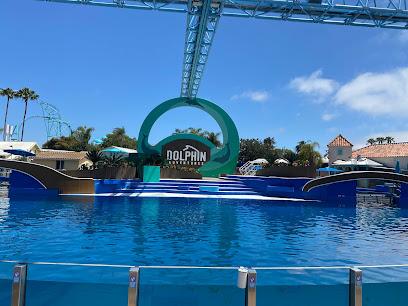
SeaWorld San Diego
Experience amazing animal encounters, thrilling rides, and family-friendly entertainment at SeaWorld San Diego in beautiful Mission Bay Park.
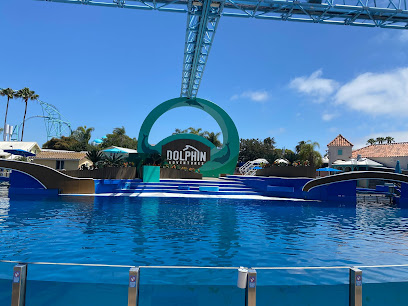
Old Town San Diego State Historic Park
Discover California's birthplace in Old Town San Diego, where history comes alive through preserved buildings, vibrant culture, and authentic Mexican flavors.
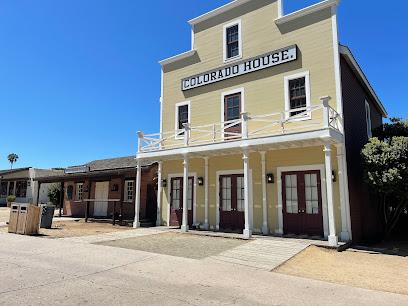
Old Town San Diego State Historic Park
Step back in time at California's birthplace, where early San Diego comes to life through historic buildings and vibrant cultural experiences.
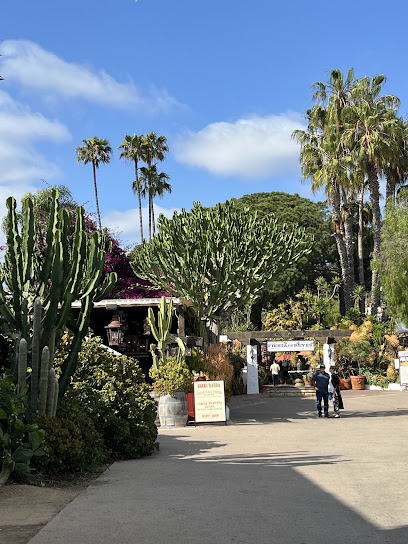
Seaport Village
Explore the vibrant Seaport Village in San Diego, a waterfront paradise filled with unique shops, incredible dining, and breathtaking views.
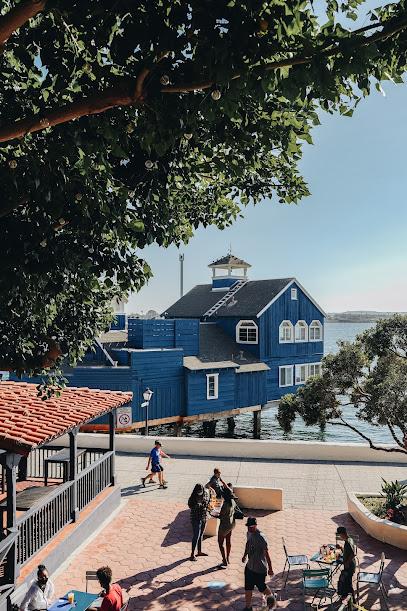
San Diego Zoo Safari Park
Embark on a global safari adventure in Southern California, where conservation meets unforgettable wildlife encounters.
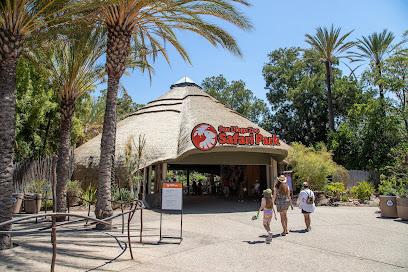
Mission Bay Park
Discover San Diego's Mission Bay Park: A vast aquatic playground with beaches, water sports, and endless recreational activities for all ages.
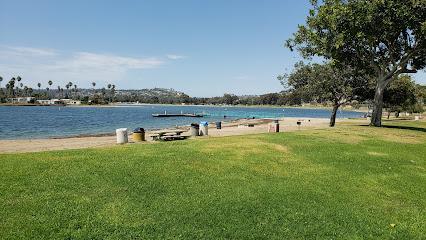
Tijuana Cultural Center
Discover Tijuana's vibrant culture at CECUT, home to the iconic 'La Bola' IMAX theater, museums, and events for all ages.
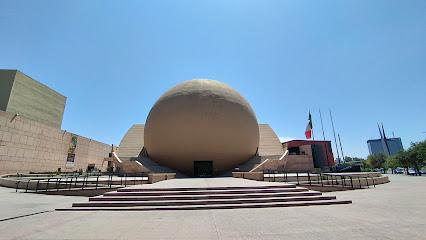
Petco Park
Experience baseball and more at Petco Park, a vibrant San Diego landmark with stunning views, diverse events, and a unique local flavor.
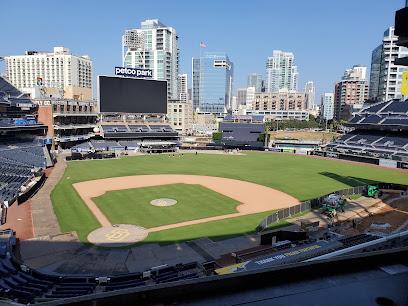
Belmont Park
Experience classic beachfront fun at Belmont Park, San Diego's historic amusement park with thrilling rides, games, and ocean views.
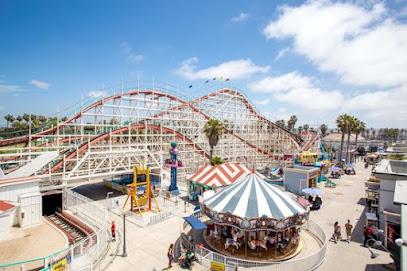
Torrey Pines State Natural Reserve
Explore the breathtaking coastal wilderness of Torrey Pines State Natural Reserve, home to rare pines, scenic trails, and stunning ocean views.
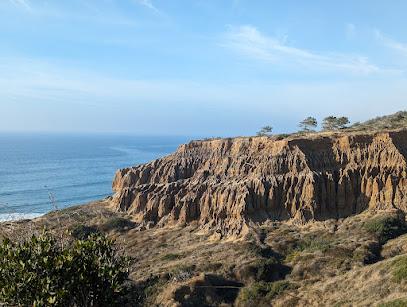
Cabrillo National Monument
Explore San Diego's history and natural beauty at Cabrillo National Monument: stunning views, tide pools, and the iconic Old Point Loma Lighthouse.
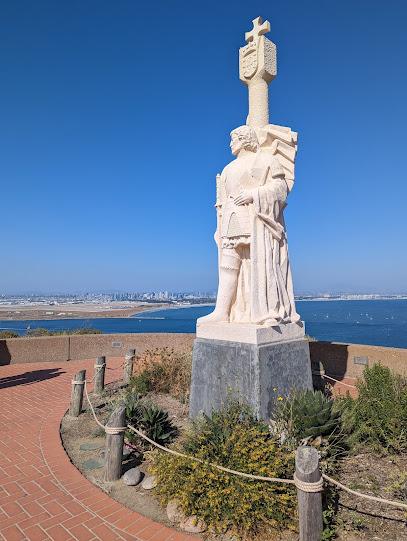
Lifeguard La Jolla Cove
Discover La Jolla Cove: A stunning coastal gem with clear waters, abundant marine life, and playful sea lions in beautiful La Jolla, California.
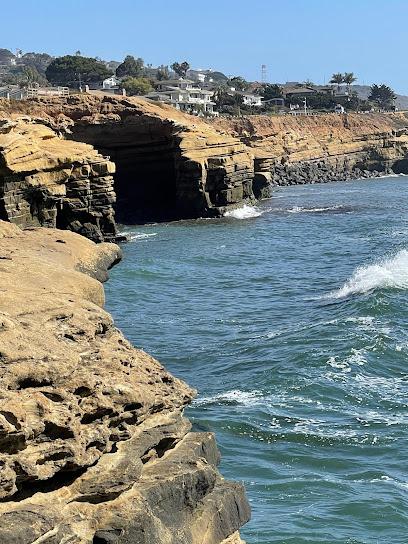
Essential places to dine
The Crack Shack - Little Italy
Discover the best of American cuisine at The Crack Shack - Little Italy with gourmet fried chicken and a lively atmosphere in San Diego.
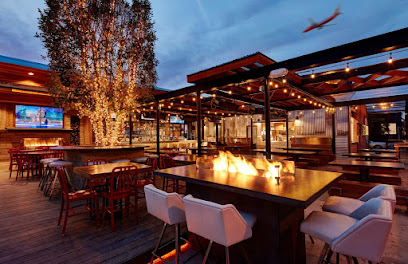
Steamy Piggy
Experience the best of Asian fusion at Steamy Piggy - where delicious dumplings meet innovative Chinese cuisine in San Diego.
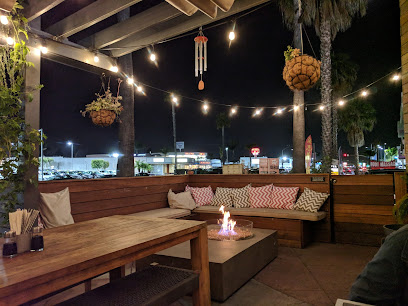
Coasterra
Experience exquisite Mexican cuisine and breathtaking bay views at Coasterra – where fine dining meets coastal charm in San Diego.
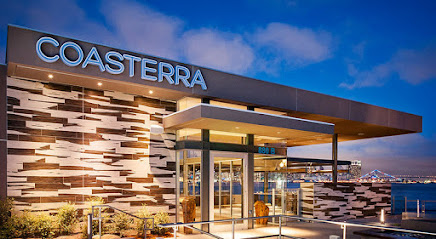
Hodad's Downtown
Experience the best of San Diego’s burger scene at Hodad's Downtown – where flavor meets fun in every bite.
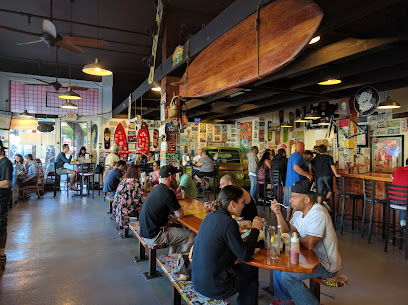
Ironside Fish & Oyster
Experience the best of San Diego's seafood scene at Ironside Fish & Oyster - fresh oysters, coastal cuisine, and vibrant ambiance await!
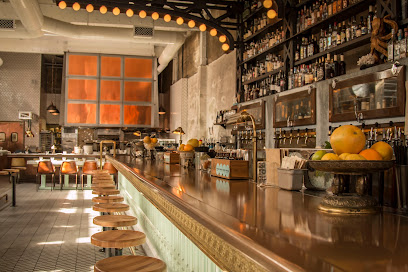
Corvette Diner
Dive into retro vibes at Corvette Diner in San Diego – where delicious American food meets arcade fun in a nostalgic setting.
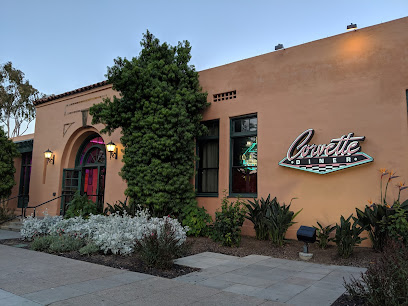
Fogo de Chão Brazilian Steakhouse
Experience authentic Brazilian churrasco at Fogo de Chão in San Diego's Gaslamp Quarter - where every meal is a celebration.
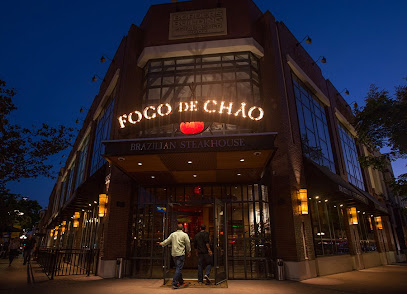
Tom Ham's Lighthouse
Experience exquisite seafood dining at Tom Ham's Lighthouse with stunning waterfront views in San Diego.
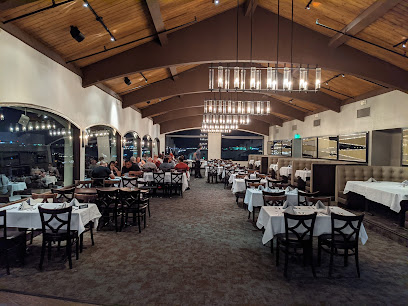
World Famous
Experience Californian cuisine at World Famous in Pacific Beach - where great food meets stunning ocean views.
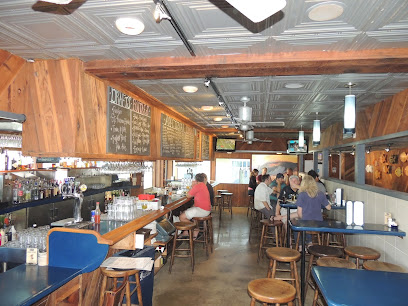
House of Blues Restaurant & Bar
Discover the vibrant fusion of live music and Southern cuisine at House of Blues Restaurant & Bar in San Diego's lively Downtown.
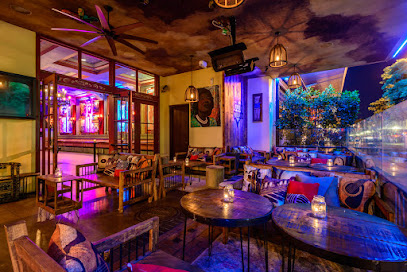
Puesto At The Headquarters
Experience authentic Mexican cuisine at Puesto At The Headquarters in Downtown San Diego - where every meal is a celebration.
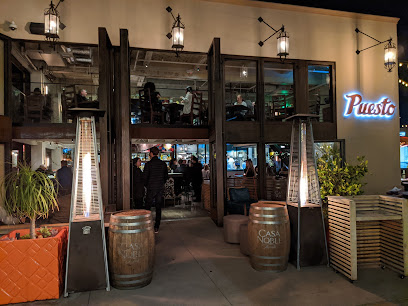
Cafe Sevilla of San Diego
Experience the vibrant spirit of Spain at Café Sevilla in San Diego - where delicious tapas meet lively entertainment in the heart of Gaslamp Quarter.
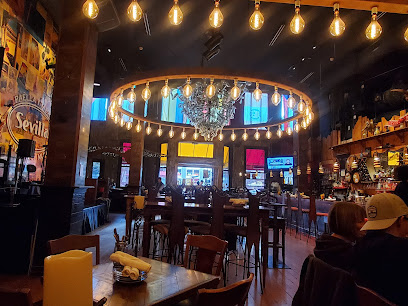
C Level Lounge
Experience exquisite seafood dining at C Level Lounge with stunning views of San Diego Bay and skyline.
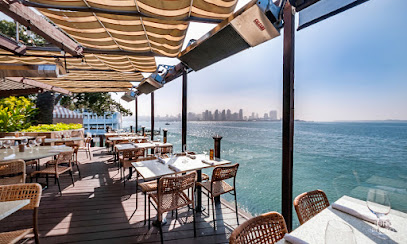
Born and Raised
Discover culinary excellence at Born and Raised - San Diego's premier steakhouse offering exquisite cuts of meat in a luxurious setting.
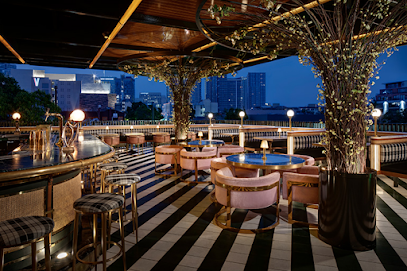
Werewolf
Discover Werewolf: A Bar & Breakfast Haven Offering Brunch Delights & Karaoke Fun in San Diego's Gaslamp Quarter.
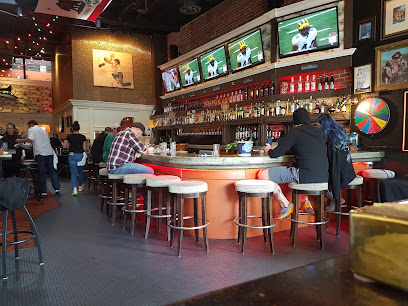
Markets, malls and hidden boutiques
Old Town Market
Experience the rich history and vibrant culture at Old Town Market, San Diego's premier shopping and cultural destination.
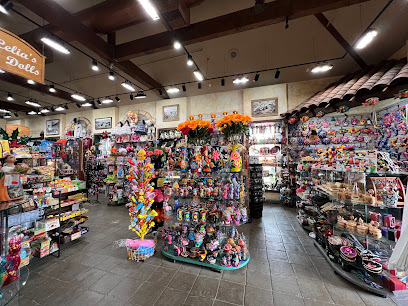
Pangaea Outpost
Explore Pangaea Outpost in San Diego, where unique gifts, local art, and vibrant culture converge for an unforgettable shopping experience.
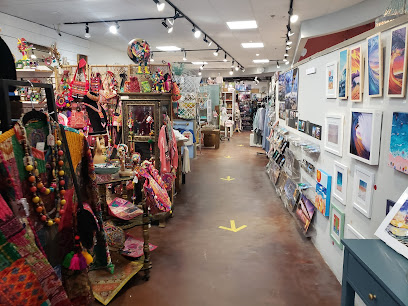
San Diego's Largest Vintage and Antique Mall
Explore the largest vintage and antique mall in San Diego, where every corner holds a unique treasure waiting to be discovered.
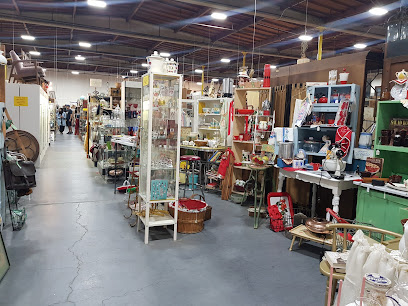
Bazaar Del Mundo
Discover a vibrant gift shop in San Diego's Old Town, filled with unique artisan crafts and colorful souvenirs reflecting rich local culture.
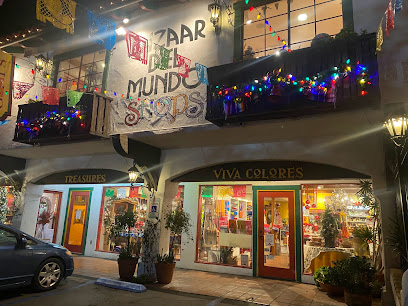
The Cave of Wonders
Explore The Cave of Wonders in San Diego, where enchanting gifts, unique jewelry, and mystical treasures await in a vibrant atmosphere.
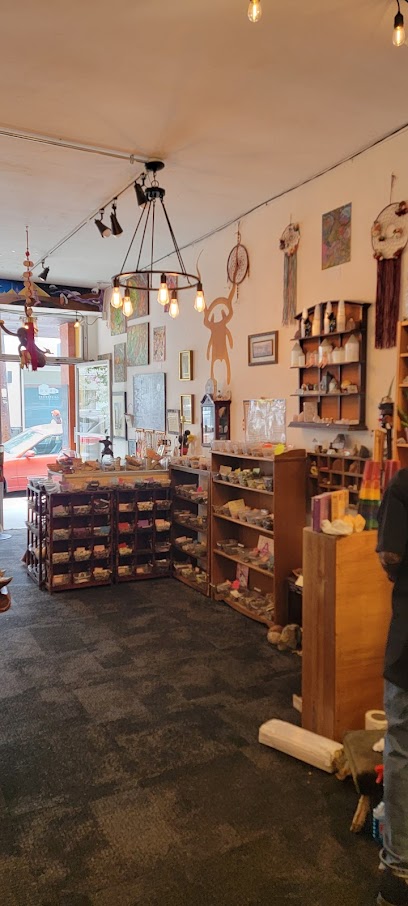
Gaslamp Garage
Explore Gaslamp Garage in San Diego for unique gifts, stylish clothing, and fun souvenirs that capture the essence of the city.
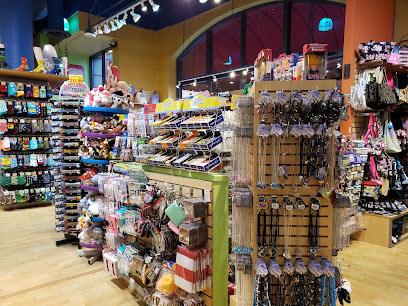
Vervor Shop
Explore Vervor Shop in San Diego for unique handmade gifts, local art, and unforgettable treasures that capture the spirit of Southern California.
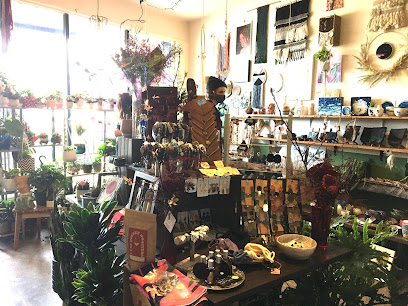
Bay Company
Explore San Diego's Bay Company for unique souvenirs and stylish sportswear that capture the spirit of Southern California.
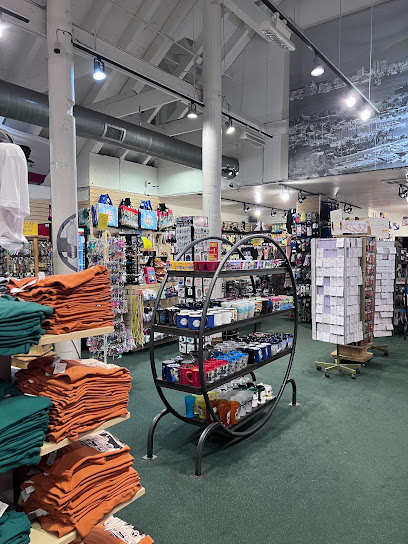
OB GIFT SHOP
Explore OB Gift Shop for unique souvenirs and local treasures that capture the essence of San Diego's vibrant Ocean Beach community.
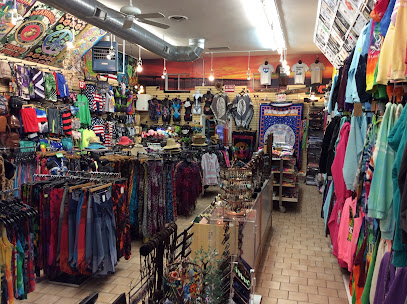
FIVE AND DIME GENERAL STORE
Explore Five and Dime General Store in Old Town San Diego for unique gifts, nostalgic snacks, and unforgettable memorabilia.
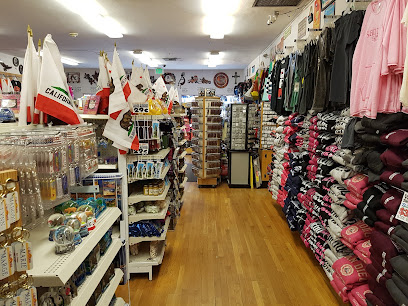
Vitreum
Explore Vitreum, San Diego's unique gift shop offering locally crafted treasures and artisanal gifts that capture the city's vibrant spirit.
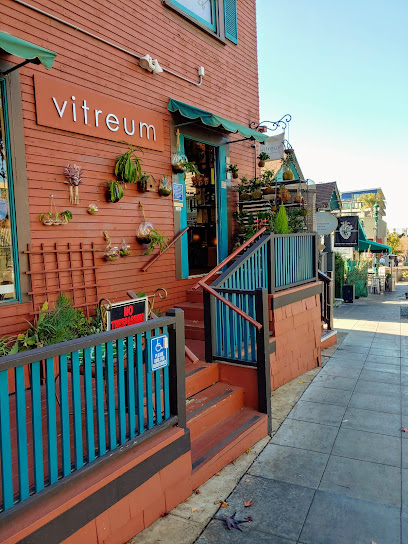
Bad Madge & Co.
Explore a curated collection of vintage clothing and unique furniture at Bad Madge & Co. in San Diego's charming South Park neighborhood.

United Nations International Gift Shop
Explore global treasures at the United Nations International Gift Shop in San Diego - your gateway to unique gifts, books, clothing, and music from around the world.
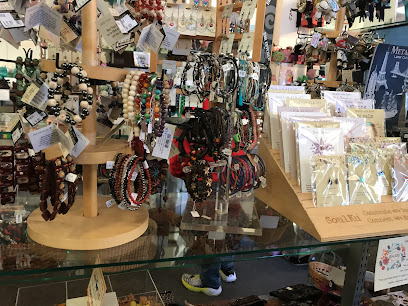
Urban Girl
Discover Urban Girl in Downtown San Diego: a chic gift shop offering trendy women’s clothing and unique local treasures for every visitor.
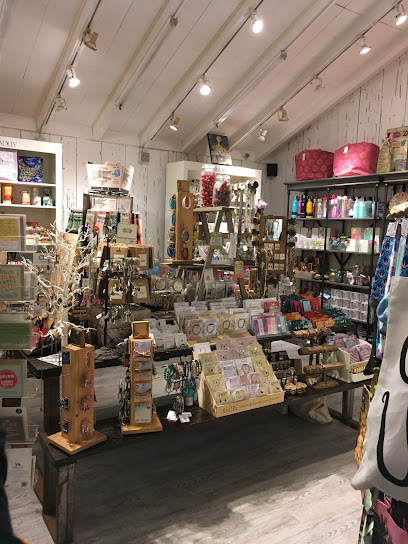
Treasures By the Sea
Explore Treasures By the Sea in Old Town San Diego for unique gifts, local artisan crafts, and a vibrant shopping experience that captures the essence of coastal California.
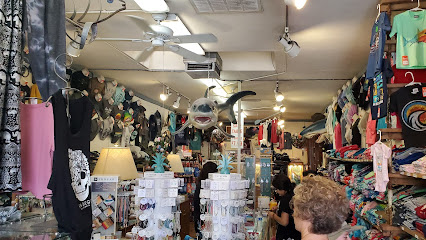
Essential bars & hidden hideouts
The Tipsy Crow
Experience the vibrant nightlife at The Tipsy Crow, a top bar in San Diego's Gaslamp Quarter, offering drinks, bites, and unforgettable memories.
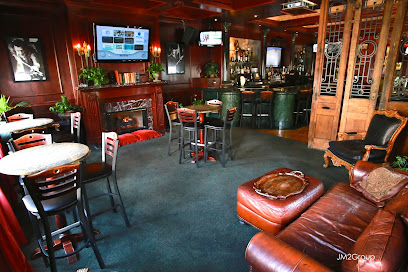
Polite Provisions
Discover Polite Provisions, an iconic cocktail bar in North Park, San Diego, where vintage charm meets modern mixology.
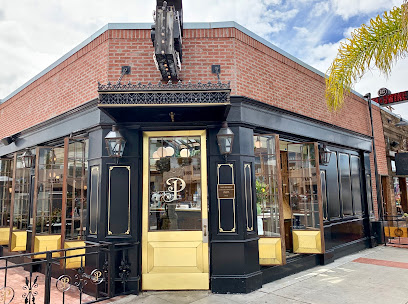
The Lion's Share
Discover innovative American cuisine and vibrant cocktails at The Lion's Share, a premier bar and restaurant in Downtown San Diego.
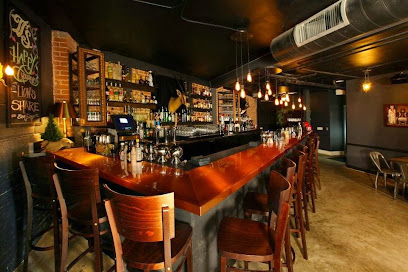
Raised by Wolves
Discover San Diego's hidden gem - Raised by Wolves, a speakeasy cocktail bar with innovative drinks and a captivating atmosphere.
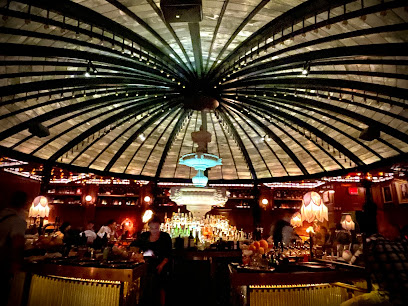
False Idol
Discover False Idol, a tiki bar in San Diego offering exotic cocktails and an immersive island atmosphere that delights every visitor.
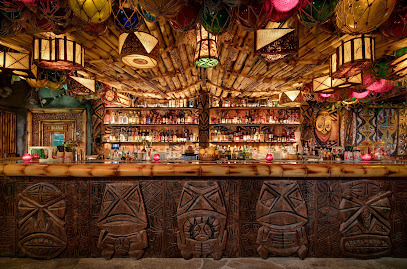
The Whiskey House
Discover The Whiskey House, San Diego's premier bar offering an unparalleled selection of whiskey, gourmet food, and a vibrant atmosphere for all occasions.
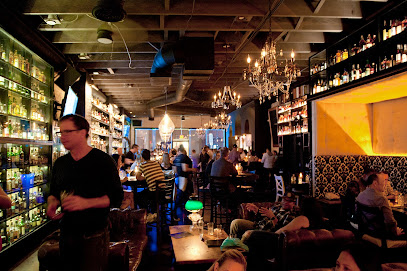
Noble Experiment
Discover Noble Experiment, an upscale speakeasy bar in San Diego offering craft cocktails and a unique prohibition-era experience in a hidden setting.
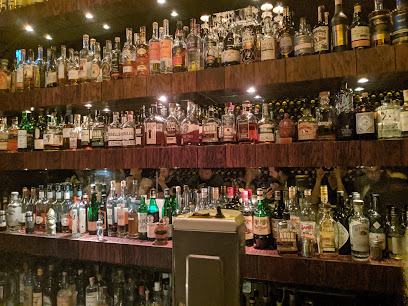
Trailer Park After Dark
Discover the quirky charm of Trailer Park After Dark in San Diego, where vintage vibes meet delicious comfort food and creative cocktails.
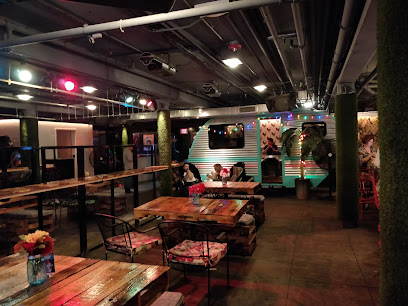
Vin de Syrah
Discover the enchanting Vin de Syrah, a premier wine bar in San Diego's Gaslamp Quarter, offering exquisite wines and an inviting atmosphere.
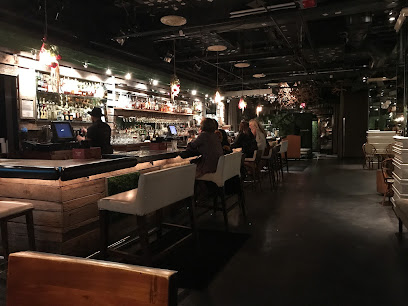
Neighborhood
Discover the vibrant flavors of San Diego at this dynamic gastropub, where gourmet cuisine meets a lively bar atmosphere.
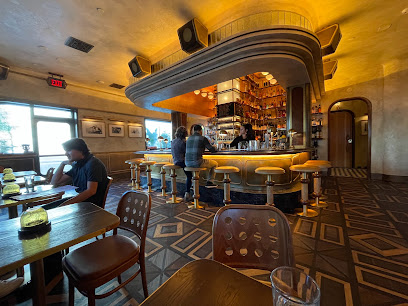
The Nolen
Experience breathtaking views and innovative cocktails at The Nolen rooftop bar in downtown San Diego, where every sip is a delight.
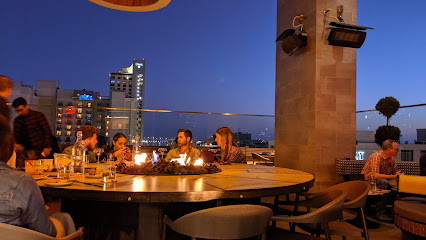
Whistle Stop Bar
Experience the vibrant culture of South Park at Whistle Stop Bar, where live music meets a laid-back atmosphere in San Diego.
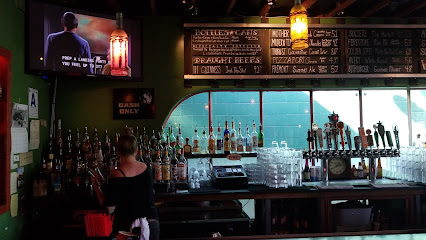
Sidecar Bar
Discover Sidecar Bar in San Diego – a lively spot with craft beers, cocktails, and a fun atmosphere perfect for a night out.
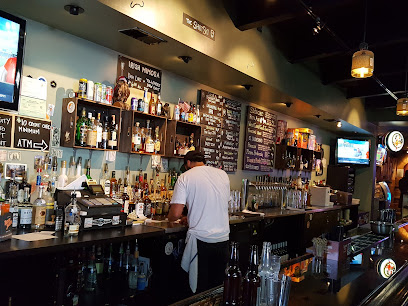
The Office Bar
Experience the vibrant nightlife at The Office Bar in North Park, San Diego, known for its creative cocktails and lively atmosphere.
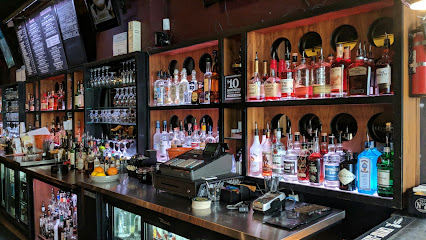
Local Phrases
-
- HelloHola
[oh-lah] - GoodbyeAdiós
[ah-dee-ohs] - YesSí
[see] - NoNo
[noh] - Please/You're welcomePor favor/De nada
[por fah-vor/deh nah-dah] - Thank youGracias
[grah-see-ahs] - Excuse me/SorryPerdón/Lo siento
[pair-dohn/loh see-ehn-toh] - How are you?¿Cómo estás?
[koh-moh ehs-tahs] - Fine. And you?Bien. ¿Y tú?
[bee-ehn. ee too] - Do you speak English?¿Hablas inglés?
[ah-blahs een-glays] - I don't understandNo entiendo
[noh ehn-tee-ehn-doh]
- HelloHola
-
- I'd like to see the menu, pleaseMe gustaría ver el menú, por favor
[meh goo-stah-ree-ah vehr ehl meh-noo, por fah-vor] - I don't eat meatNo como carne
[noh koh-moh kahr-neh] - Cheers!¡Salud!
[sah-lood] - I would like to pay, pleaseMe gustaría pagar, por favor
[meh goo-stah-ree-ah pah-gahr, por fah-vor]
- I'd like to see the menu, pleaseMe gustaría ver el menú, por favor
-
- Help!¡Ayuda!
[ah-yoo-dah] - Go away!¡Vete!
[veh-teh] - Call the Police!¡Llama a la policía!
[yah-mah ah lah poh-lee-see-ah] - Call a doctor!¡Llama a un doctor!
[yah-mah ah oon dohk-tohr] - I'm lostEstoy perdido
[ehs-toy pair-dee-doh] - I'm illEstoy enfermo
[ehs-toy ehn-fehr-moh]
- Help!¡Ayuda!
-
- I'd like to buy...Me gustaría comprar...
[meh goo-stah-ree-ah kohm-prahr] - I'm just lookingSólo estoy mirando
[soh-loh ehs-toy mee-rahn-doh] - How much is it?¿Cuánto cuesta?
[kwan-toh kwehs-tah] - That's too expensiveEso es demasiado caro
[eh-soh ehs deh-mah-see-ah-doh kah-roh] - Can you lower the price?¿Puedes bajar el precio?
[pway-dehs bah-har ehl pree-syoh]
- I'd like to buy...Me gustaría comprar...
-
- What time is it?¿Qué hora es?
[keh or-ah ehs] - It's one o'clockEs la una en punto
[ehs lah oo-nah ehn poon-toh] - Half past (10)Media en punto (10)
[meh-dee-ah ehn poon-toh (dee-ehs)] - MorningMañana
[mah-nyah-nah] - AfternoonTarde
[tahr-deh] - EveningNoche
[noh-cheh] - YesterdayAyer
[ah-yehr] - TodayHoy
[oy] - TomorrowMañana
[mah-nyah-nah] - 1Uno
[oo-noh] - 2Dos
[dohs] - 3Tres
[trehs] - 4Cuatro
[kwah-troh] - 5Cinco
[seen-koh] - 6Seis
[says] - 7Siete
[see-eh-teh] - 8Ocho
[oh-choh] - 9Nueve
[nweh-veh] - 10Diez
[dyehs]
- What time is it?¿Qué hora es?
-
- Where's a/the...?¿Dónde está el/la...?
[dohn-deh ehs-tah ehl/lah] - What's the address?¿Cuál es la dirección?
[kwahl ehs lah dee-rehk-syohn] - Can you show me (on the map)?¿Puedes mostrarme (en el mapa)?
[pway-dehs mohs-trar-meh (ehn ehl mah-pah)] - When's the next (bus)?¿Cuándo es el próximo (autobús)?
[kwan-doh ehs ehl proh-ksy-moh (ow-toh-boos)] - A ticket (to ....)Un boleto (a ...)
[oon boh-leh-toh (ah ...)]
- Where's a/the...?¿Dónde está el/la...?
History of San Diego
-
Long before European settlers arrived, the Kumeyaay people called the San Diego region home for thousands of years. They lived in harmony with the land, developing sophisticated agricultural practices and crafting intricate basketry and pottery. Their deep connection to the environment is still evident today, with many place names in the area derived from the Kumeyaay language.
-
In 1542, the Portuguese explorer Juan Rodriguez Cabrillo, sailing under the Spanish flag, became the first European to set foot on what is now the West Coast of the United States. Cabrillo landed at San Diego Bay and claimed the area for Spain, naming it 'San Miguel'. This marked the beginning of European interest in the region.
-
In 1769, Spanish explorer Gaspar de Portolá and Franciscan friar Junípero Serra established Mission San Diego de Alcalá, the first of the 21 California missions. This mission became the cornerstone of Spanish colonization in the region, playing a crucial role in the spread of Christianity and European culture among the native populations.
-
Following Mexico’s independence from Spain in 1821, San Diego became part of the Mexican territory of Alta California. During this period, the mission system was secularized, and large land grants were distributed, leading to the establishment of vast ranchos. This era significantly influenced the cultural and architectural landscape of San Diego.
-
In 1848, the Treaty of Guadalupe Hidalgo ended the Mexican-American War and resulted in California becoming part of the United States. San Diego, then a small town, was incorporated as a city in 1850, just months after California achieved statehood. This marked the beginning of American governance and development in the area.
-
In 1885, the completion of the transcontinental railroad's extension to San Diego spurred economic growth and population expansion. The railroad connected San Diego to the rest of the country, facilitating trade, tourism, and migration, which transformed the city into a bustling urban center.
-
Held in 1915-1916, the Panama-California Exposition celebrated the opening of the Panama Canal and showcased San Diego as the first American port of call for ships traveling north after passing through the canal. The exposition left a lasting legacy in Balboa Park, with many of the buildings constructed for the event becoming iconic landmarks.
-
During World War II, San Diego's strategic location made it a crucial military hub. The establishment of numerous naval bases and the influx of defense industry workers led to rapid urban and economic growth. This period cemented San Diego's reputation as a major military city, a status that continues to this day.
-
In the latter half of the 20th century, San Diego emerged as a leader in biotechnology and life sciences. The establishment of institutions like the Salk Institute for Biological Studies and UC San Diego fostered innovation and attracted top-tier talent, making the city a global center for research and development in the biotech sector.
-
San Diego has experienced a cultural renaissance in recent decades, with significant investment in arts, entertainment, and cultural institutions. The city’s diverse population has enriched its cultural fabric, leading to vibrant neighborhoods, a flourishing culinary scene, and numerous cultural festivals that celebrate the rich tapestry of its residents.
San Diego Essentials
-
San Diego is well-connected by air, road, and rail. The primary airport is San Diego International Airport (SAN), which serves numerous domestic and international flights. Amtrak provides train services to San Diego via the Pacific Surfliner route. For those driving, San Diego is accessible via Interstate 5 (I-5), I-8, and I-15. Greyhound and other bus services also operate routes to the city.
-
San Diego offers various transportation options. The Metropolitan Transit System (MTS) operates buses and trolleys that cover much of the city. Rideshare services like Uber and Lyft are widely available. Renting a car is a popular option for tourists, especially for visiting areas outside the city center. Biking is also a viable option, with many bike rental shops and dedicated bike lanes.
-
The official currency in San Diego is the US Dollar (USD). Credit cards are widely accepted in most establishments, including hotels, restaurants, and shops. ATMs are plentiful, and it's advisable to carry some cash for small purchases or tips. Mobile payment options like Apple Pay and Google Wallet are also commonly accepted.
-
San Diego is generally considered a safe city for tourists. However, like any major city, it's important to stay vigilant. Avoid walking alone at night in less-populated areas and be cautious in neighborhoods like East Village and certain parts of Downtown after dark. Keep an eye on your belongings in crowded places like beaches and tourist attractions.
-
In case of an emergency, dial 911 for immediate assistance. San Diego has numerous hospitals and clinics, including UC San Diego Health and Scripps Mercy Hospital. Pharmacies are widely available for minor health issues. It's advisable to have travel insurance that covers medical emergencies.
-
Fashion: Do dress comfortably and casually; San Diego has a laid-back vibe. Don't wear overly revealing clothing in more conservative areas. Religion: Do respect religious sites and customs, particularly in places like Old Town and Mission San Diego de Alcalá. Public Transport: Do be polite and offer seats to elderly passengers on public transport. Don't eat or drink on public transport. Greetings: Do greet people with a friendly 'hello' or handshake. Don't assume everyone is comfortable with physical contact. Eating & Drinking: Do try local foods like fish tacos and craft beers. Don't leave a small tip; tipping around 15-20% is customary in restaurants.
-
To experience San Diego like a local, visit the farmers' markets in neighborhoods like Little Italy and Hillcrest. Spend time in Balboa Park, exploring its museums and gardens. Enjoy the beaches, but also explore inland areas like North Park and South Park for unique dining and shopping experiences. Attend a Padres game at Petco Park for a true local experience.
Trending Landmark in San Diego
-
Balboa Park
-
San Diego Zoo
-
SeaWorld San Diego
-
Old Town San Diego State Historic Park
-
Seaport Village
-
Torrey Pines State Natural Reserve
-
Cabrillo National Monument
-
Mission Beach Boardwalk
-
Chicano Park
-
Maritime Museum of San Diego
-
Spruce Street Suspension Bridge
-
Old Point Loma Lighthouse
-
Mormon Battalion Historic Site
-
Whaley House Museum
-
Alcázar Garden
Nearby Cities to San Diego
-
Things To Do in Coronado
-
Things To Do in Chula Vista
-
Things To Do in La Jolla
-
Things To Do in Tijuana
-
Things To Do in Carlsbad
-
Things To Do in Oceanside
-
Things To Do in Temecula
-
Things To Do in Laguna Beach
-
Things To Do in Irvine
-
Things To Do in Costa Mesa
-
Things To Do in Huntington Beach
-
Things To Do in Palm Desert
-
Things To Do in Palm Springs
-
Things To Do in Anaheim
-
Things To Do in Long Beach



















